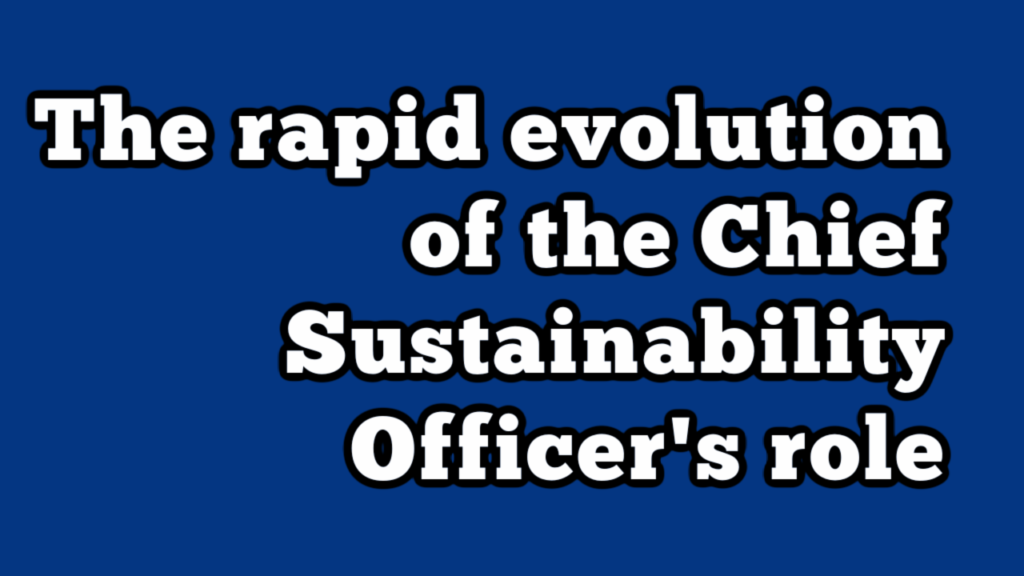The rapid evolution of the Chief Sustainability Officer’s role

– Chief Sustainability Officers are in high demand.
– Their role is evolving to be more of a C-Suite officer, a senior executive with a business background – and some ESG experience – who is focused on value creation. That’s a departure from the mid-level role that CSOs have had, repurposed with no prior ESG experience.
This article entitled “ESG 2.0 – The Next Generation of Leadership” by Russell Reynolds’ Kurt Harrison talks about the high demand for Chief Sustainability Officers – and how the role (and skill sets necessary) for the position are evolving.
And here is a 75-minute video from Deloitte and the Institute of International Finance. I’ll admit I didn’t have the stamina to watch the entire thing – but it covers:
- The mandate of the CSO’s role
- The skill set of the CSO
- Reporting lines and relationship with the CEO
- The CSO’s contribution to governance
- Future pathways for the role
And TheCorporateCounsel.net writes in this blog: this INSEAD Knowledge blog notes how CSOs are fast becoming a fixture and provides insight about the impact of the CSO. The blog discusses research of 400 large US companies that found CSOs have an impact by improving a company’s sustainability record. What was interesting to me was a finding about the degree of a CSO’s impact on company engagement in “socially responsible” activities versus reducing “irresponsible” activities. Here’s an excerpt:
As expected, companies with a CSO engage in more socially responsible activities (e.g. investments to reduce carbon emissions) and fewer socially irresponsible activities (e.g. polluting the environment). Significantly, we found that CSO presence has a greater effect on companies ‘doing less bad’ than ‘doing more good.’ This effect is particularly pronounced in companies in so-called “sin” or culpable industries like tobacco, and, notably, in companies with a board committee for sustainability.
